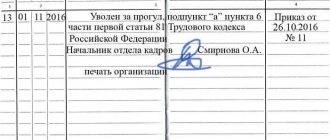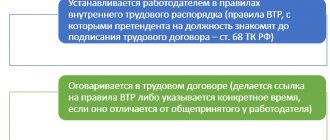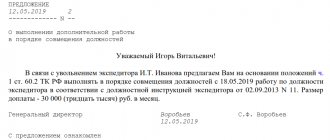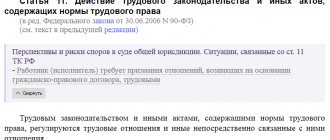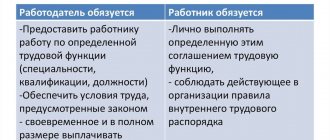29.07.2019
0
118
6 min.
According to medical research, working at night has a negative impact on a person’s well-being and undermines his health. But in a number of branches of modern production and service there are enterprises with a continuous technological process. For their normal functioning, it is considered advisable to use a 24-hour schedule. Night work is regulated by the Labor Code of the Russian Federation and clearly regulates the actions of management. After all, any activity must be carried out within the framework established by legal norms.
Article 96. Labor Code of the Russian Federation. Night work
The main document that considers situations relating to the specifics of work and payment on the “third” shift is the Labor Code. It contains a definition of night time, a list of groups of personnel who are allowed or prohibited from working after 22.00. A non-standard regime negatively affects a person’s health and well-being, leads to changes in biorhythms and often disrupts the functioning of important body systems.
Regulations
Legislative regulation allows you to obtain basic information at a given time. Article 96 of the new edition of the Labor Code of the Russian Federation with comments contains the following provisions:
- definition of the concept of “night time”;
- data that the duration of the “third” shift is reduced by 1 hour;
- standard hours (no more than 35) for persons working at night on a permanent basis.
Part 2 of the same article clarifies that reducing the period of work at night does not imply subsequent work. Parts 3 and 4 reflect a list of situations when the duration of the “third” shift is equal to the standard working day.
It is important to know! Part 5 contains information about the categories of employees who are prohibited from being involved in night activities. In Art. 253 of the Labor Code of the Russian Federation contains information about restrictions on work in the period from 22.00 to 6.00 according to general provisions for women. Art. 154 contains provisions on how night shifts are paid correctly under the Labor Code, and on the amount of increased rates.
Length of night hours
Night time in Labor Legislation is defined as the period from 22.00 to 6.00. In Art. 96 indicates that the duration of the “third” shift is a total of 7-8 hours. The period is set taking into account working conditions and the availability of additional benefits. In practice, the exact amount of working time at night is regulated by the following documents.
- Local regulations in force at the enterprise. They reflect not only the duration of the shift, but also the nuances associated with remuneration for this period.
- A collective agreement concluded between the employer and subordinates that has not lost its relevance.
- An individual work contract, which specifies working conditions, a list of job functions, work schedule and payment rules.
Many workers are interested in what time is considered night time according to the Labor Code. For example, if an employee starts work at 10 pm and finishes it at 4 am, then the manager is obliged to register it as a night shift. However, his partner, who starts at four o'clock, will be considered a day shift. If the schedule provides for a work period from 17.00 to 01.00, it is registered as partly night.
The law provides for the possibility of reducing the duration of the “third” shift, but does not establish it for all employees. Categories that are not covered by this benefit include:
- persons who, due to certain circumstances, are assigned a part-time work shift during the day;
- subordinates hired with the condition of performing labor functions exclusively at night, for example, a watchman, a nurse, a caregiver.
Advice! To improve the employee’s performance and increase his labor productivity, the manager is obliged to provide him with the opportunity to alternate night and day shifts.
Working conditions
Before engaging an employee to work at night, the director is required to obtain his written consent. If such a need arises rarely, the subordinate must confirm the fact of voluntarily going to work each time. Based on this document, an order is issued, in accordance with which an additional payment will be calculated at a special rate.
In general, night work according to the labor code, despite its apparent complexity, has positive and negative sides for employees. The advantages of such a schedule include:
- the possibility of receiving higher earnings (on average by 20-50%);
- availability of free hours during the day and evening to perform everyday and urgent matters;
- additional days off assigned as a supportive measure;
- easier working conditions;
- shortened (on average 1 hour) work shift;
- limited control (and sometimes its complete absence) from management.
At the same time, it is necessary to identify a number of shortcomings that accompany workers working on the night shift.
- changes in daily routine, inadequate rest and lack of sleep at the right time;
- limited opportunities to communicate with family and friends due to conflicting work schedules;
- lack of free time, since weekends are spent on recovery;
- Difficulties in adapting to non-standard operating modes.
The periodically arising need to work on the night shift is a proposal from the management of the enterprise, to which the employee can respond with either consent or refusal.
Restrictions
Many company managers strive to implement a round-the-clock operating mode and, in practice, ensure uninterrupted work activity, citing the requirements of production and the need to provide products or services to numerous consumers. For this purpose, HR employees together with the trade union are developing a special schedule that takes into account many factors:
- maximum duration of night work;
- permissible number of shifts;
- allotted time to rest.
Each employee must be given the opportunity to work during the day, unless the employment contract specifies permanent night work (for example, a guard, a nurse, a nurse). The exception is for categories of subordinates who cannot be allowed to perform their functions at night under any circumstances.
- Pregnant employees who provide a supporting document issued by a doctor.
- Persons under the age of majority, with the exception of representatives of cinematography, theater, and other creative professions.
- Subordinates who are unable to work at work due to poor health.
At the same time, the Legislator allows for the involvement of certain categories of employees who want to work on their own initiative to work one-time at night, according to the Labor Code of the Russian Federation.
- Women with children under three years of age.
- Employees with disabilities confirmed by a medical certificate.
- Subordinates caring for sick family members in parallel with their main job functions.
- Employees who care for disabled children.
- Parents or guardians raising one or more children under 5 years of age alone.
Attention! These persons must confirm their desire with a written statement, to which is attached a certificate of health and the absence of contraindications to perform duties on the “third” shift. An employee with a disability must submit a report from a medical commission or attending physician.
Legal norms
Night working hours are a necessary measure if the company must operate around the clock. This type of organization is found in the field of public services and the production sector.
The rules for conducting continuous activities are determined by Art. 96 of the Labor Code of the Russian Federation, which clearly explains how to determine night working hours according to the Labor Code of the Russian Federation. This is any time between 10 pm and 6 am. The duration of night work is reduced by an hour compared to the standard working day.
The exception is working at night with part-time work during the week (shortened week), or hiring an employee only for night work. The employer has the right not to shorten work shifts if there are objective needs or if a shift schedule with a 6/1 schedule is practiced.
Labor Code of the Russian Federation Article 96. Work at night
Labor Code of the Russian Federation Article 96. Night work (click here to open the full text)
Labor Code of the Russian Federation Article 96. Work at night Night time is the time from 22 o'clock to 6 o'clock.
The duration of work (shift) at night is reduced by one hour without further work. (as amended by Federal Law No. 90-FZ of June 30, 2006)
The duration of work (shift) at night is not reduced for employees who have a reduced working time, as well as for employees hired specifically to work at night, unless otherwise provided by the collective agreement.
The duration of work at night is equal to the duration of work during the day in cases where this is necessary due to working conditions, as well as for shift work with a six-day work week with one day off. The list of specified works may be determined by a collective agreement or local regulations.
The following are not allowed to work at night: pregnant women; workers under the age of eighteen, with the exception of persons involved in the creation and (or) performance of artistic works, and other categories of workers in accordance with this Code and other federal laws. Women with children under three years of age, disabled people, workers with disabled children, as well as workers caring for sick members of their families in accordance with a medical certificate issued in the manner established by federal laws and other regulatory legal acts of the Russian Federation , mothers and fathers raising children under the age of five without a spouse, as well as guardians of children of the specified age, may be involved in night work only with their written consent and provided that such work is not prohibited to them for health reasons in accordance with the medical report. At the same time, these employees must be informed in writing of their right to refuse to work at night. (as amended by Federal Laws dated July 24, 2002 N 97-FZ, dated June 30, 2006 N 90-FZ)
Procedure for night work of creative workers of the media, cinematography organizations, television and video film crews, theaters, theatrical and concert organizations, circuses and other persons involved in the creation and (or) performance (exhibition) of works, in accordance with the lists of works , professions, positions of these workers, approved by the Government of the Russian Federation, taking into account the opinion of the Russian Tripartite Commission for the Regulation of Social and Labor Relations, can be established by a collective agreement, a local regulatory act, or an employment contract. (as amended by Federal Laws dated June 30, 2006 N 90-FZ, dated February 28, 2008 N 13-FZ)
Who is not required to work at night?
Not all citizens can get a job with shifts assigned at a later time. The law imposes a ban on the labor activity of certain categories of citizens who are under special protection of the state. The following are not allowed to work at night:
- Pregnant workers.
- Minor citizens.
These norms are fixed in Article 96 of the Labor Code.
Additional approval will be required if the employee falls into one of the following categories:
- employees raising children under 3 years of age;
- citizens with disabilities, unless there are medical contraindications;
- single fathers and mothers, guardians raising minor dependents (up to 5 years);
- parents caring for children with disabilities;
- persons caring for sick relatives, according to a medical report.
If a person falls into one of the above categories, management cannot assign a shift at night until written consent is received, which records the employee’s notification of the right to refuse to work outside of working hours.
The law does not establish restrictions on the type of activity, determining who can work on the night shift, based on production needs and the need to serve citizens.
Pay for night work
Hours worked at night are paid at a special rate, that is, using increased rates. The size of the premium coefficient is not fixed, but is established by the Government of the Russian Federation. According to his Resolution, the amount of additional payment must be at least 20% of the current rate for each hour worked during the daytime.
The provisions on how night hours are paid under the Labor Code are fixed in Art. 154. They state that for the period of production activity from 22.00 to 6.00, the employee is assigned a benefit in the form of monetary compensation, the amount of which is determined by the Labor Code of the Russian Federation and other regulatory documentation. At the same time, each employer has the right to assign a different amount of additional payment, taking into account the capabilities of the enterprise.
Currently, employees in various industries receive bonuses in the following amounts.
| Field of activity of the employee | Amount of additional payment in % (of the regular rate per hour of work) |
| Fire Department | 35 |
| Warfare | |
| Sentry security | |
| Healthcare sector | 50 |
| Penal institutions | 35 |
| Law enforcement system |
Additional compensation is calculated in accordance with the following standards:
- a collective agreement concluded between management and subordinates, and not contrary to the law.
- local documents in force at the enterprise.
- an individual work contract concluded with a specific employee.
- regulations adopted during the USSR and valid today;
- Decree of the Government of the Russian Federation No. 554 of August 22, 2008
It should be noted that the preferential tariff applies to employees who perform night work once, or who work in a similar mode constantly.
Night overtime
According to the provisions of the Labor Code of the Russian Federation, the employer has the right to involve employees in overtime work. This situation arises if there is a need to urgently complete a certain type of work, but it is not possible to do this during one shift.
Processing, as a rule, is taken into account within a certain accounting period - shift, week, month. The need for an employee to be present at production may also arise at night. Involvement of a subordinate during this period is allowed only with his written consent, and the time spent at work is recorded as additional and paid in the established manner. If he works in accordance with an irregular day schedule, then the excess period is not considered overtime.
Situations when an employee goes to work of his own free will:
- unfinished work that could cause damage to the property of the enterprise or personnel;
- forced production downtime and subsequent financial losses due to equipment breakdown;
- absence of a replacement due to illness or other reasons.
It is important to know! At the same time, the employer has the right to involve subordinates in night work without their consent, if there is a need to prevent an emergency, eliminate the consequences of a raging natural disaster, a man-made disaster, or urgent repair of equipment.
Which workers can only work at night if they want to?
In addition to those mentioned above, the legislator identifies separate categories of employees whom the company has the right to engage in night work, but only if such an employee agrees to work in the dark. An exhaustive list of these groups of specialists is contained in Art. 96 Labor Code of the Russian Federation. These are, in particular:
- women with small children (under 3 years old);
- persons with disabilities;
- employees of the company who have disabled children;
- employees of the organization who, by virtue of doctors’ orders (expressed in a medical report), care for sick members of their families;
- single fathers and mothers who have a dependent child under 5 years of age, as well as guardians of such children.
PAY ATTENTION! Such specialists are only allowed to engage in activities at night for which they have no contraindications due to health reasons.
In order for a specialist assigned to one of these categories to complete work “overnight,” the company must obtain his written consent. The Labor Code of the Russian Federation does not provide for a form for expressing such consent; therefore, it can only be free.

